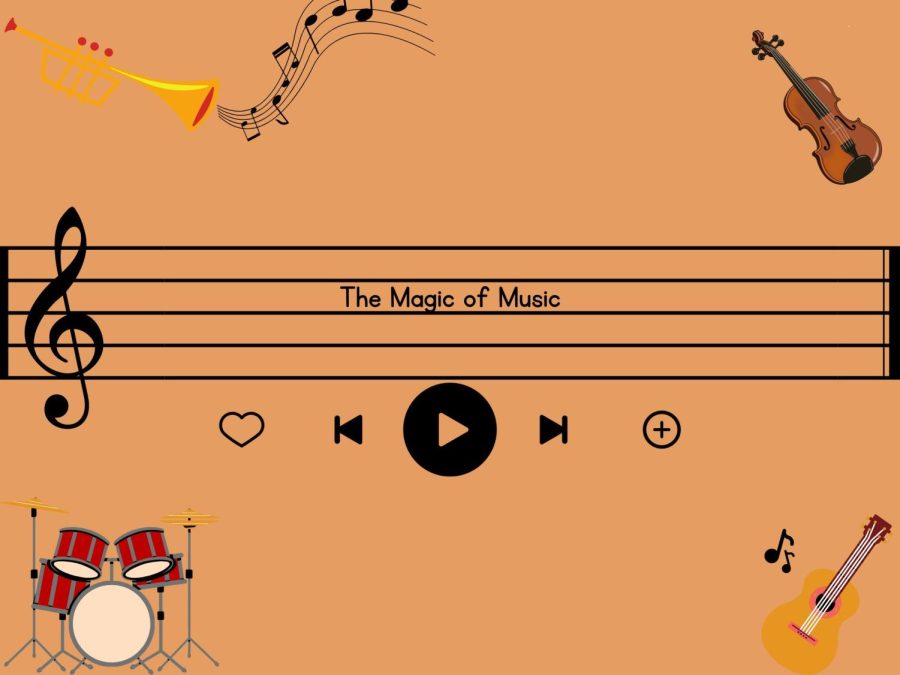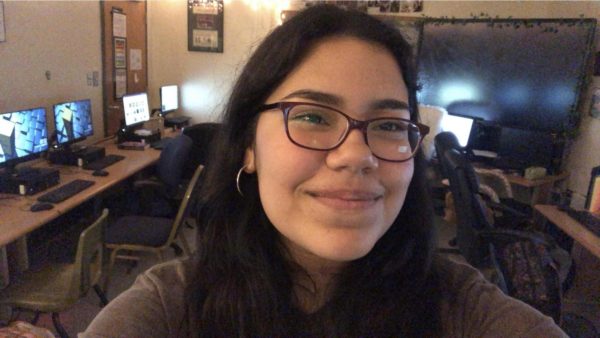The magic of music
The argument of when the creation of music arose remains unknown and most likely will never settle, as it relates to vast amounts of historical events, religions and the overall creation of mankind. While a couple of scholars continue to choose to argue over the philosophy and origin of music, others prefer to admire it while it continues to grow and evolve. Music remains an art in itself and constantly exceeds listeners’ expectations.
January 30, 2023
Created over an astonishing 35,000 years ago, music continues to inspire those who possess the opportunity to listen to it. With different tunes and notes, music teases the brain to anticipate additional amounts of the same sound. When people listen to music, if impactful enough, the music can trigger their brains to release dopamine. Dopamine allows one to feel pleasure and satisfaction and remains important for people to possess in order to understand how to feel contentment at least once in life. Music should continue to receive praise for allowing humans to handle such extreme feelings over music.
Music holds qualities that transform our brains to react in certain ways, like enabling people to feel satisfied and it allows people to discover ways to express themselves and inspire others. To know how to create music, one must learn first—learning to play music benefits people in multiple ways. For example, when learning music, people can develop the left side of their brain, which builds language and reasoning skills. Music can also help people– usually children– with memorization.
“I think most people remember the ‘ABCs’ or ‘Twinkle Twinkle Little Star’ as one of the first songs they ever memorized. For me personally, songs like those helped me realize that I could memorize complex things in general, at whatever age. Teachers even come up with songs that help their students remember what will be on their next test, like the ‘Planets song’. I would say that kids for sure benefit from learning and memorizing songs,” sophomore David Achamaja said.
Creating music, specifically writing songs, helps people relieve stress. Writing lyrics for a song can feel similar to writing in a diary or journal. Musicians like Taylor Swift constantly report that writing songs about their lives and changing the story for the song helps them release pent-up emotions through music. In a study in 1995, psychologist Kathleen S. Mayers found that songwriting even helped reduce anxiety and distress in traumatized children.
Music not only allows development in the left side of the brain and helps with stress and anxiety, but it also provides an escape for people who feel excessively strained from work or school. Music played in the background while working proves beneficial to students and adults. The music can act as a nice soothing sound to calm people or a beat that allows them to concentrate on their work and accomplish further achievements.
“I always listen to music while doing my homework, it helps me concentrate and it also blocks out any disturbing noise within my workspace. I find that my best work comes from a version of me that is created when I listen to music. I think that many people can agree that music helps them in many ways and can even just be used for comfort and relaxation,” sophomore Josie Barszcz said.
Music comes with numerous benefits and pleasures. Certain people recall and correlate certain songs with special memories. Even now, songs serve multiple purposes and can feel versatile for anyone, as several pieces fit into categories for any and every occasion. Music continues to improve the well-being of countless individuals and will always progress as one of the world’s greatest pieces of art.







